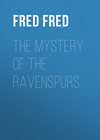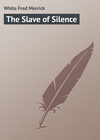Kitabı oku: «Hard Pressed», sayfa 8
CHAPTER XXII
A SOLDIER OF FORTUNE
MAJOR CARDEN sat over the breakfast which his daughter had prepared for him. He had been unusually late the night before, and showed it in the additional pinkness of his cheeks and the slightly red rims under his eyes. Not that he was feeling much the worse for the previous evening's pleasure; indeed, in his philosophical moments, the Major was fond of speculating which was the wiser – to take his fill of enjoyment's cup with its concomitants in the morrow of suffering and tribulation, or abandon such courses, however delightful. One mode of life was jolly to a point, but, on the other hand, the man who exercised prudence and some measure of control had a compensation in his economy. As a matter of fact, the Major never had been economical. "Sufficient for the day is the evil thereof" summed up his religion to its fullest extent. After a stimulant he knew he would be himself again, so he ate his breakfast with a zest that was truly amazing after the carousal of the night.
For Major Carden always appeared to be in the best of health and spirits. Beyond his impecuniosity he had little to trouble him, and at the moment things appeared to be going very well indeed. He saw his way to make money out of Phillips, and had also been offered a roving commission on the Continent to purchase horses for the Army. This would entail his being away for three or four months, but his travelling allowance was liberal, he would put up at the best hotels, and enjoy himself in a manner consonant with his mission and dignity. He would tell his daughter that he was going abroad on some journalistic commission, for the Major, to do him justice, would have been loth for Alice to know all the expedients he resorted to in earning his precarious living.
His love for his daughter was the one wholesome spot in his otherwise shady existence. He had been a selfish man all his life, had spent his own fortune and his wife's, and had broken the heart of that unhappy woman in a gentlemanly way. There had been no violence, no open unkindness, but the refinement of neglect that undermines health and spirit. When the crash finally came the Major removed to London with his young daughter. He told her just as much as he considered necessary, with the consequence that she regarded him as one of the best and most self-denying of men. Alice had few friends, and none knew anything about the Major's means, so that the journalistic fiction remained unassailable, and Alice could speak freely of her father as adding high intellectual qualities to his other gifts. His frequent late absences from home were explained in this way, and if he never said anything definite about his work, his diffidence might be attributed to natural modesty.
In the circumstances, therefore, the Major was not sorry his daughter had had an invitation to spend a holiday at Haredale Park. He had thought of inviting himself also, but his new commission put that out of the question. After he had finished his breakfast he helped himself to a liberal dose of brandy and soda, and had just lighted his first cigar when his daughter came in.
"You are very late," she said with playful fondness. "I declare you grow worse and worse."
"Not my fault, my dear," the Major protested. "These things are inevitable amongst newspaper men. I thought I should be at home by eleven, but something important turned up at the last moment and they told me off to attend to it. They are good enough to say they can depend on me, Alice. That is one of the advantages of being steady. If anything goes wrong at the office the first thing they say is, 'Where is Carden?'"
Alice smiled affectionately. To her this was quite natural. For a girl who had spent so many years in London she was wonderfully simple.
"I suppose it can't be helped," she said. "How few men there are who would have endured your misfortunes and turned to and made a living as you are doing! I wish I were clever."
"Oh, so you are, my dear, so you are," the Major said magnanimously. "The great thing is pluck and perseverance. Without egotism, I think I am endowed with those qualities, and to some extent so are you, and you will make a name as an artist yet. Stick to it, my child, stick to it. At the same time, it is good to have an occasional change, and I am glad you are going to Haredale Park. I suppose you can manage to put your painting pupils off for a week or two? Probably you will find it lonely when I am away. I shall only be able to run over from the Continent occasionally."
"Oh, I shall miss you," Alice said. "But I shall be safe enough. The landlady is always motherly, and she will see I come to no harm."
The Major dismissed the subject with a flourish of his cigar. He had rather feared his daughter might give way to tears. He thought she might ask him to take her along with him and so put him to the pain of refusal. Possibly the girl was looking too eagerly forward to her visit to Haredale Park to think of anything else. She had not forgotten the days when Major Carden was a man of position and they occupied a fine house in the country, when she had her horse and plunged into the dear delights of country life. It was good to feel she was going back to it, even though it was only for a little time. She had already made her modest preparations. She only hoped there would not be too many visitors at Haredale Park. But May Haredale had assured her they lived very quietly and had not many friends.
"I am getting nervous about it," she said. "It will seem so different to the life I have been leading here. If I had only foreseen this I might have saved up and bought myself another dress or two. Still, I know I shall enjoy myself."
"Of course you will," the Major said heartily. "But you won't get much gaiety at Haredale. They don't go in for society much. You see, there are very few of the old families left. Times change, my dear, and we change with them. I don't suppose, plainly speaking, that Sir George is much better off than I am. I happen to know that much depends upon the Blenheim colt winning this year's Derby. I was in the Post Club yesterday with one or two of my – "
The Major coughed hastily as if his cigar smoke had gone the wrong way.
"What am I talking about?" he exclaimed. "Anybody would think I am still interested in sport. Do you know, beyond an occasional day at a small meeting, I have no time for that sort of thing. I was in the Post Club on business, purely on business. It is a very sad thing to see young men wasting so much of their time and money on horses. But I can't prevent them from talking and am bound to hear the gossip that goes on. That is how I came to know so much about Sir George's affairs. Every penny he can scrape together goes on the stables, so you'll probably find that Miss Haredale leads a very quiet existence."
"I am glad to hear it," Alice said. "I shall be happy with her. She was the greatest friend I had at school, and I can't understand how I ever managed to lose sight of her. Is it a nice place?"
"Very pleasant," the Major said critically. "It is a grand old house, full of works of art and furniture and that kind of thing. Of course, all these things go with the estate, so that Sir George could not dispose of them, which is a precious lucky thing for the heir, for there won't be too much for him when the time comes. The stables are very fine, too, and Sir George has some of the best cattle in the country. Oh, I have no doubt you will enjoy yourself. When do you go?"
"To-day," Alice said.
The Major appeared to be slightly embarrassed.
"Oh, yes," he said, "I had forgotten. It is a trifle awkward, because I have only a little money just now. The cashier at the office is so careless. He omitted to draw my cheque on Friday. Till to-morrow I am not sure whether I shall be able to spare money for your fare. Next week it would be quite different."
Alice Carden kissed the speaker affectionately.
"How thoughtful you are!" she said. "You are always thinking about other people. But please don't worry about that. I have saved a little, and shall have enough to keep me for the next two or three weeks and bring me home again."
The Major expressed his gratification. For once at least he was sincere. It was most unfortunate, he said, that he should be in temporary need of cash. He laid strict injunctions upon Alice to spend what she had freely and not for one moment to forget that she was a Carden; if she wanted more money she was to write to him without hesitation. He saw her off at Waterloo presently. He paid for the cab in the most lordly fashion, and insisted on his daughter travelling first class, though he had not the money to pay for the ticket. But Alice was looking forward too eagerly to her holiday to notice these things.
"Good-bye," she cried. "You will have left for the Continent before I come back. But don't let the thought of my being alone in London interfere with your pleasure. I should like to feel you were not troubling about me."
"I'll try, my dear," the Major said. "Good-bye."
CHAPTER XXIII
A CHANGE OF AIR
ABOUT the same time that Major Carden was sitting over his breakfast, Sir George Haredale was gloomily contemplating his own. He had read most of his letters, and had impatiently pushed aside the sheaf of bills and applications for money which poured like a flood upon him at every post. Some of them were peremptory and some imploring. But they had been coming in for so long that the master of Haredale Park was more or less hardened to them. But one communication was distinctly out of the common and worried him excessively.
"What the deuce does it mean?" he soliloquized irritably. "And who are these people, Absalom & Co.? I never had any dealings with them. According to their note-paper they call themselves financial agents, but the whole thing looks more like a communication from money-lenders. Yet I don't see how I owe them anything. They write to remind me that in virtue of an assignment made by Mr. Raymond Copley of a certain date I am in their debt to the extent of more than forty thousand pounds. What the dickens is an assignment? And what does Copley mean by doing a thing of this sort without consulting me? These people hope I shall make arrangements to liquidate the debt in the course of the next fourteen days. Why, they might just as well ask me to find as many millions. But I daresay there is nothing really alarming about the thing if I only understood it. I wish I had a head for figures. I wish my father had given me a business training. Still, Copley will put it right. Perhaps he is annoyed at the way that May has been behaving. But I hardly think he will visit her folly upon me. However, I must say the thing is alarming."
Sir George shuffled the letter into his pocket as the door opened and May entered. She was dressed for going out and was buttoning her driving gloves round her wrists. Outside on the gravel stood a smart cob in a Whitechapel cart.
"Where are you going?" Sir George asked.
"To the station to meet Alice Carden. She will be here for lunch."
"I had forgotten her," Sir George murmured. "To tell you the truth, my dear, I am rather sorry you asked her."
"But I was always fond of Alice."
"Yes, of course, why not? The girl is all right. But, between ourselves, Carden is a bit of a bad egg. He comes of an old family, and I recollect when his position was as good as ours. But he muddled his money away. He always affected the society of those sportsmen who are ready to do anybody. He made the mistake of regarding everybody as a fool except himself, and naturally he came to grief. Those fellows always do."
"But he belongs to one or two good clubs," May protested.
"Oh, I know that. He was never actually found out. He was mixed up in one or two very queer transactions, but contrived to keep clear of trouble himself. There are scores of men who meet him on familiar terms, but precious few ask him to their houses. Still, the girl is coming here, and we must make the best of it. But I wouldn't ask her again if I were you. You can easily drop the acquaintance after the next week or so."
May discreetly refrained from discussing the matter further. There was a strong vein of loyalty in her nature. She liked Alice Carden, and was not disposed to visit any of the father's shortcomings on the daughter. She had almost forgotten what Sir George said during her drive to the station. It was a crisp day, and a frosty sun was shining. There was an exhilaration in the air almost like champagne. Before the station was reached May put her troubles behind her, not a very difficult matter for a girl in her twentieth year who boasts of a fine constitution and a perfect flow of animal spirits. Her cheeks were glowing, her eyes sparkling, as she advanced to meet Alice Carden.
"I thought I would come for you myself," she said. "I brought a cart which I am driving. Now if you will pick out your boxes we'll get a porter to put them in the trap for you."
"My boxes," Alice laughed. "Behold my humble belongings. I have come down here with one dress-basket which contains all the finery I have. I hope you haven't many dinner parties and that kind of thing, for, positively, I have only one evening dress, and I am afraid that that is hopelessly out of date. Still, if you have any special functions, it will be easy to plead a convenient headache."
May laughed as she took up the reins.
"Calm yourself," she said. "I assure you there will be nothing of that sort. We have dropped out of gaieties. For one thing, most of our old friends have left the neighbourhood, and my father doesn't care for new people. We three will probably dine alone every night of your stay, and we can ride and drive, and I can give you a day or two with the hounds if you like."
Alice Carden protested sincerely that she wanted nothing better. It was pleasant to find herself once more driving down the country roads behind a good horse. It was like old times when she came to Haredale Park and surveyed the room which had been appropriated to her use. It was exactly as her father had described. Here was the old oak, the long rambling passages, the china and pictures and ancient furniture, all in the setting where they had been fixed the best part of two centuries ago. Here was the open landscape in front of the mullioned windows. Here were the woods and fields and lawns, and in the distance the stables where Sir George Haredale's stud led its luxurious existence.
It was pleasant to sit in the dining-room before a well-appointed lunch with the fine silver on the table, the vases of flowers, and the beautiful glass. Whatever Sir George's feelings on the subject of his daughter's guest were, there was nothing in his manner to which the girl could take exception. He was natural, courtly and charming, as he always was, and appeared to take the keenest pleasure in Alice Carden's arrival. So far as she could see, there was no sign of trouble, no grim shadow to forecast the ruin hanging over the house. The butler and a footman or two moved about the room. The sunshine poured through the painted windows. Altogether it was a household to be envied. Alice's spirits rose accordingly. She meant thoroughly to enjoy herself, and when lunch was over professed herself willing to fall in with any plan May had to suggest.
"Well, let us have a ride," the latter said. "We will go over the Downs towards the sea and come back by Seton Manor. Now run away and get your habit on. I will have a horse saddled for you which is not too fresh. You used to be a daring rider at one time, but it is as well to begin cautiously. In a day or two you shall have a hunter after your own heart."
They rode out in the keen sunshine and broke across the wide expanse of Downs, and Alice Carden gave herself up to the exquisite enjoyment of the hour. It was good to feel the elastic movement of the cob, to listen to the thud of his hoofs on the turf and catch the breeze streaming in her face. They turned presently as the sun was setting, and jogged more quietly homewards. A little later, as they came to Seton Manor, a string of horses clothed and hooded were turning into the stables. Alice pulled up.
"Who lives there?" she asked.
Some colour crept into May Haredale's cheeks.
"Our neighbour, Mr. Copley," she explained. "He is a newcomer and a great lover of horses; he is very rich, having made a large fortune in South Africa, and I suppose this is one way of getting rid of his income. Like most beginners at the game, he has hardly any good horses, but that is probably because he hasn't time to look after them himself."
"Is he a friend of yours?" Alice asked.
"Oh, well, he comes over to Haredale Park pretty frequently. My father has struck up a sort of intimacy with him. Between ourselves, I detest the man. He goes everywhere in virtue of his money, but he is not a gentleman, as anybody can see. I am going to tell you a secret, Alice, which you must not tell to a soul. Mr. Copley is anxious to marry me. Needless to say, I have given him very little encouragement."
"Of course, you wouldn't," Alice said. "You haven't forgotten what you used to tell me at school. Don't you remember how you confided in me about Harry Fielden, and how you used to read part of his letters? I never knew what became of him."
"No, I never told you. Well, perhaps I will to-night before we go to bed. It was a very unfortunate business altogether. There was nothing wrong about Harry. He was merely very reckless and extravagant, and got rid of his money and went abroad. He hadn't a single penny left, and there was an end of my romance. It sounds very commonplace, but it is just as serious to me as if it were one of those pretty stories we read in books. So now Harry has nothing and I have nothing, and some day or other I shall end, I suppose, in marrying a man for the sake of a home. But you may be certain it won't be Mr. Raymond Copley."
"How very sad!" Alice said sympathetically. "Do you ever see Mr. Fielden?"
"Oh, yes," May laughed unsteadily. "In fact, he is coming towards us now."
CHAPTER XXIV
A STRANGE VISITOR
INTEREST as well as sympathy lit up Alice Carden's eyes. She looked with something more than curiosity at the well-set-up young man who came striding across the turf towards them. May reached over and laid an impressive hand upon her friend's arm.
"I am not sure I meant to tell you so much," she whispered. "I spoke on the spur of the moment. Harry came back to England unexpectedly a little time ago, and I met him by accident in London. It was a bit romantic in its way, but I'll tell you about that later. He came down here to his old home to get some of his belongings, and, to his surprise, nobody recognized him. I was the only person who knew him, excepting an old stud-groom who had been in the employ of the Fieldens for the last fifty years. When he found that no one knew him, he thought he might procure some congenial occupation in his own neighbourhood. It was part of the same romance that he should obtain this employment at the hands of Mr. Copley. But, of course, he does not pass in his own name. Please to recollect that he is Mr. Field. Now, my dear, you have the whole story in a nutshell. It is like the plot of a novel. I am the beautiful heroine, beloved by the rich bounder, while my heart is given to the handsome penniless young man of good family who is in the villain's employ. Don't think me heartless because I speak so lightly of it, and don't forget to behave as if I had not told you this story. Mr. Field is an old friend of ours, and that's the only thing you have to remember."
Alice Carden promised to act discreetly. There was no time to say more, for Fielden was beside them, and Alice found herself bowing to him as if he were a new acquaintance.
"You have not been here before?" he asked.
"This is my first visit to Haredale," Alice said. "But I have seen you before, Mr. Field. Don't you remember you were with my father and Sir George at Mirst Park a day or two ago? We were not introduced then."
"Oh, I have not forgotten it," Fielden laughed. "I understand you are an old friend of May's, I mean Miss Haredale's. Would you mind if I came over to-night after dinner?"
May flashed a glance at the speaker.
"We shall be delighted," she said. "I fancy my father told me he expected Mr. Copley, too."
Fielden said nothing for a moment or two; then it suddenly occurred to him that he had forgotten an important matter which would detain him that evening. He understood what May had hinted to him. He knew it was hardly prudent for him to be much at Haredale Park whilst Copley was in the neighbourhood. By way of turning the conversation, he suggested that the girls should dismount and inspect the stables.
"Nothing I should like better," Alice cried.
"Then come on," Fielden said eagerly. "Let me help you down. You will find the stables everything to be desired. They are modern, luxurious, and nothing appears to have been overlooked. From first to last they must have cost about twice as much as the house. We have a dozen helpers more than are necessary; indeed, things are conducted on a most lavish scale."
"And the horses?" Alice asked. "Are they – "
"Well, as to the horses, the less said about them the better. They are a pretty moderate lot. Perhaps later we may weed them out a bit. But come and see for yourself."
It was growing dusk by the time the inspection was over. Then the two girls walked back towards the archway which led into the wide stable-yard. Outside the gate two of the stable helps were engaged in an altercation with a seedy-looking tramp in an advanced state of intoxication.
"Excuse me for a moment," Fielden said, "I must see what is wrong. Now, my man, what are you doing here?"
It was easy for the girls to notice what was going on and to hear every word that was said. At the tones of authority in Fielden's voice the tramp looked up and made a ludicrous effort to pull himself together. Over his right eye there was a fresh cut, from which the blood was trickling. The helpers, too, showed signs of punishment, and a desire to fling out the stranger, but they dropped back as Fielden appeared.
"I came to see Mr. Copley," the tramp said.
"Mr. Copley isn't here," Fielden said curtly. "Still, if you want him, it would be as well to ask for him in a proper manner. What do you mean by pushing yourself forward in this fashion?"
"I didn't," the tramp said sulkily. "I never said nothing to these men till they ordered me out, and one of them shoved up against me. I don't stand that from any one, guv'nor, and so I tell you. If you don't believe me, try it on yourself."
Fielden was conscious that the blood was mounting into his cheeks. He returned for a moment to where the two girls were standing and walked with them into the road.
"I think you had better leave us," he said. "I must give that fellow a lesson, and this is no place for either of you."
"I hope you won't get hurt," Alice Carden said. "It is curious, but I know that man quite well by sight. He used to be in my father's regiment; in fact, he was his servant. He comes to our rooms in London occasionally and my father helps him with a few coppers and some clothes now and again. I am afraid it is another case of degradation caused by drink."
"It looks like it," Fielden said. "This man was probably one of the Major's racing-touts, one of those broken-down creatures occasionally employed on more or less shady jobs. But he must be taught decent manners. I don't think you need be afraid for me. I'll try to come over to lunch to-morrow."
Fielden saluted the two girls and returned to the spot where the tramp was swaying about defiantly.
"Now what do you want?" he demanded once more.
"What do I want?" the fellow sneered. "Well, I want a sovereign, and I am not going till I get it. If Mr. Copley was here I could have ten sovereigns. Yes, and he would be glad to pay me, too. You think, because I have been unfortunate that I can't get any money. You are wrong, young man, you are wrong."
"Well, you won't get any here," Fielden said. "If you have anything to say to Mr. Copley you had better wait. He will be here at five o'clock, but you must wait outside."
"Me wait outside! Who are you talking to? I don't wait for no man, not even for Raymond Copley. I have got to get back to London to-night anyhow. You just give me a sovereign or two and tell Mr. Copley you've done it. Tell him if I have any more of this sort of thing he had best look for somebody else to play building houses with fruit baskets in Covent Garden. Tell him that. If I have any more of this to put up with he can get somebody else to monkey with his fruit baskets. You needn't say more than that."
In spite of the man's intoxication he knew what he was talking about, and was plainly desirous of conveying something definite. There was a malignant look in his eye which Fielden did not fail to notice.
"Oh, be off," he said impatiently. "I won't have any row here. Are you going, or shall I turn you out?"
The intruder answered with a furious oath. He was anxious, he said, to see any man on the face of the earth who could do a job like that. He lurched violently at Fielden, and the next moment was sprawling on his back with the haziest knowledge of what had happened. Then, at a sign from Fielden, the two helpers took him by the shoulders and legs and carried him into the road. He rose muttering and threatening. He shook his fist towards the stables and lurched off until he was swallowed up by the darkness. Quite unconscious that his knuckles were cut and bleeding Fielden went about his work. It was only when Copley himself appeared and asked what had happened that Fielden looked at his damaged hand.
"Oh, that's nothing," he laughed. "A tramp came here not long since asking for you and demanding a sovereign or two as if you were his banker. The fellow was insolent, and I had to knock him down, but I had no idea my knuckles were cut. Needless to say the man didn't get his sovereign, though he did leave a queer message for you. It is astonishing what strange things men say when they are in liquor."
"And what did this one say?" Copley asked.
"Oh, he said if he could see you he would get as many pounds as he liked. He went on to remark that if he had to put up with any more of this you could find somebody else to monkey with your fruit baskets at Covent Garden. Idiotic, wasn't it?"
Fielden spoke carelessly, but he kept an eye upon Copley. He saw the latter start, remarked the queer look on his face, and how his eyes gleamed with anger.
"Absurd," he said. "I suppose the fellow thinks I am interested in Covent Garden. But there is no accounting for the vagaries of a drunken man. Anyway, it's not worth thinking about. Anything fresh to report?"





